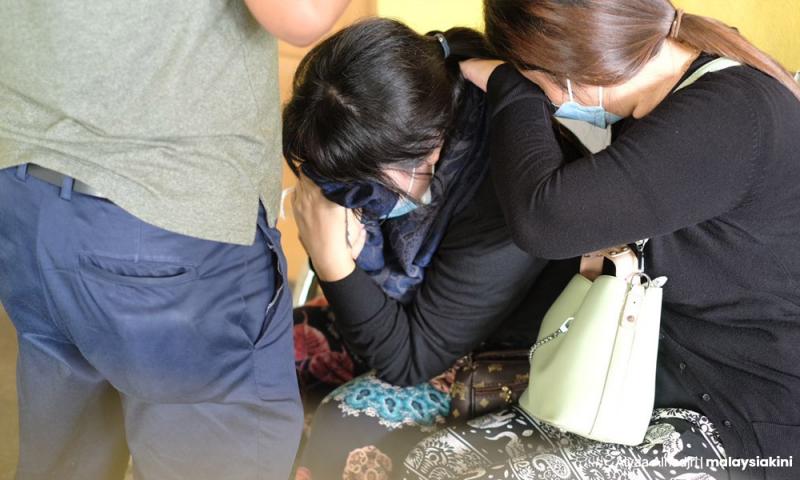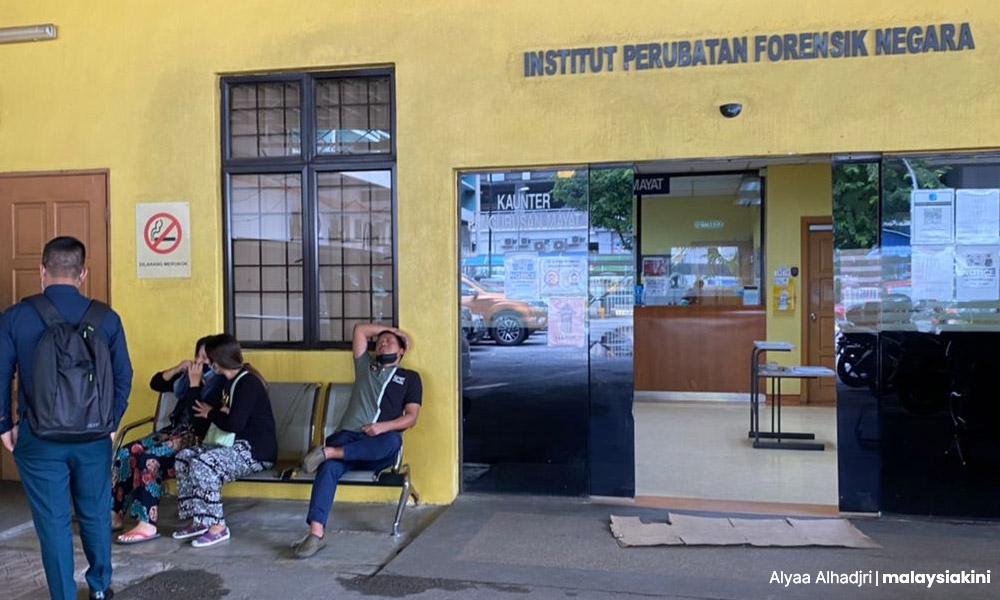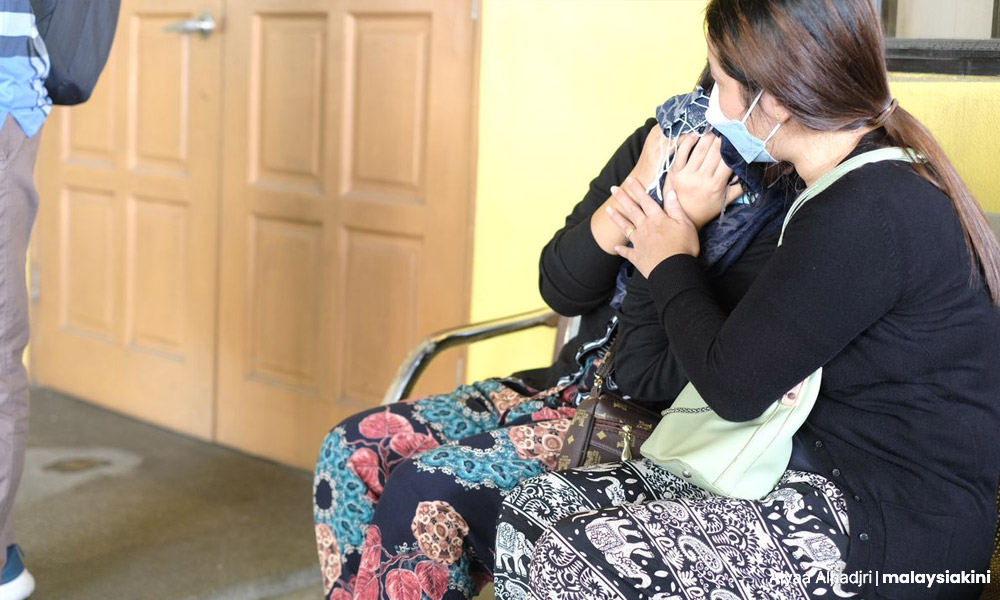
Kepong murders: Mother turns to activists, friends for strength
Now left alone to care for her four-year-old son, Myanmar national Aye Aye is relying on her fellow ethnic Chin refugees here to help survive the tragedy that befell her family.
Accompanied by a close friend and members of the Alliance of Chin Refugees (ACR), Aye was present at the Kuala Lumpur General Hospital's National Medical Forensic Institute to identify the remains of her husband and two children.
Her 38-year-old refugee husband had reportedly thrown their three children off a flyover in Kepong yesterday before plunging to his death.
Initially appearing calm, it took Aye less than five minutes inside the autopsy room to identify the bodies before she walked out, assisted by a friend, visibly shaken and sobbing.
Met later, ACR activist Ai John told Malaysiakini that preparations are being made by the group to claim the bodies and raise funds for a funeral to be held tomorrow.
"We found a sponsor for RM7,000 and we’re trying to get another RM2,000 ourselves," he said.
John also said Aye had to leave her youngest son alone at Selayang Hospital where he is receiving treatment in the intensive care unit for injuries, including a broken leg, sustained in the 5.15am incident at the Middle Ring Road 2 (MRR2) highway.
"She will go back to Selayang Hospital after we're done here," he added.

Previously, John told Malaysiakini that Aye's husband had been under a lot of stress because of his inability to find a job and failure to secure identification documents from the United Nations High Commissioner for Refugees (UNHCR) for his youngest child.
The man was also said to exhibit signs of depression since last year.
Factors for suicide are complex and cannot always be easily attributed to mental health problems or other issues faced by the deceased.
The World Health Organization considers suicide a public health issue but said it is preventable with early intervention.
In a statement to Malaysiakini, the UNHCR said its representatives here have made contact with the refugee community assisting Aye to make an initial assessment on further protection and needs of her family.
“We have been informed by the community that the family is understandably in deep grief after the tragic and traumatic incident, and when appropriate, UNHCR will be reaching out to offer psychosocial support to help them through this ordeal.
"Additionally, UNHCR has reached out to the law enforcement officials to offer our cooperation where appropriate and as needed," it added.
'Try to move out'
Speaking through a translator, Aye revealed that her family - after about 10 years in Malaysia - still had no clear permanent resettlement plans.
However, she would consider moving out of her rented room which she shares with at least two other refugee families.
Another ACR activist, who gave his name as Steven, noted it would be traumatic for Aye to continue living in her home with constant memories of her late husband and children.
Asked about available assistance for refugees struggling with mental health issues, Steven pointed to limited help by the UNHCR and grassroots organisations.

Meanwhile, ACR former chairperson James Jawi Thang Bik and local migrant rights group Beyond Borders founder Mahi Ramakrishnan said that mental health issues contributing to suicide numbers within the refugee communities in Malaysia have largely gone undetected with no freedom of movement and non-recognition of their status here.
"Loss of jobs, inability to feed their families or make rent and the lack of a safe passage to seek asylum are some of the reasons refugees are forced to commit suicide.
"Not only do they not have the right to work but are also unable to access affordable healthcare and structured education for their children.
"We have no way of gauging the prevalence of mental health issues amongst the refugee population, who are forced to live under the radar as the government continues not to recognise their right to seek asylum as it has not ratified the 1951 UN Refugee Convention," they said in a joint statement.
There have been renewed calls for refugees to be allowed to legally work in Malaysia, particularly following an ongoing shortage of migrant labour in critical sectors.
Last month, refugee rights groups and human rights lawyers shot down the government's approved adoption of the Tracking Refugees Information System (TRIS) for all UNHCR cardholders.
This follows Home Minister Hamzah Zainudin's announcement that UNHCR cardholders must register with TRIS to identify their whereabouts in Malaysia, as well as other personal details.
No comments:
Post a Comment